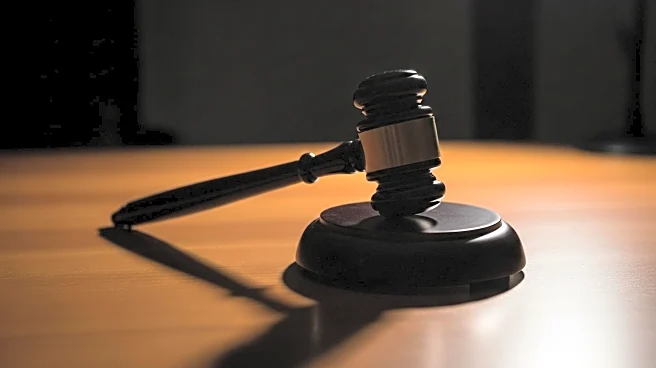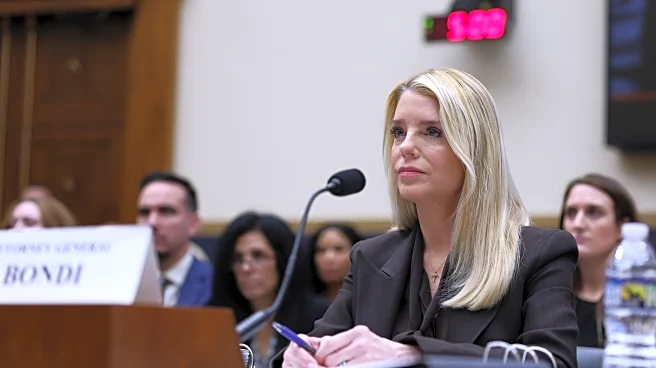What's Happening?
Michael Madigan, the former House Speaker, is set to report to federal prison to begin serving a 7 1/2-year sentence for corruption charges. Madigan, who was once considered one of the most powerful politicians in Illinois, was convicted on multiple counts, including bribery conspiracy and wire fraud. His conviction stems from a scheme involving Commonwealth Edison, where Madigan allegedly accepted payments for do-nothing subcontracts. Despite his lawyers' request for him to serve his sentence at a medium-security facility in Terre Haute, Indiana, it remains unclear if this request was granted. Madigan's sentencing marks a significant fall from grace for the man known as 'The Velvet Hammer' due to his firm leadership style.
Why It's Important?
Madigan's imprisonment is a significant event in Illinois politics, highlighting the state's ongoing battle against political corruption. His conviction and sentencing underscore the consequences of abusing political power and the legal system's role in holding public officials accountable. The case also reflects broader concerns about ethical governance and the influence of corporate interests in political decision-making. Madigan's downfall may serve as a cautionary tale for other politicians and could influence future legislative reforms aimed at curbing corruption.
What's Next?
Madigan's appeal process is underway, with his attorneys seeking to overturn the conviction. The appeal is expected to be litigated before the 7th Circuit U.S. Court of Appeals, with oral arguments likely in early 2026. Meanwhile, Madigan's opening appellate brief is due in November. The outcome of the appeal could have implications for Madigan's sentence and may influence public perception of the judicial system's handling of political corruption cases.
Beyond the Headlines
Madigan's case raises questions about the ethical standards expected of public officials and the systemic issues that allow corruption to persist. It also highlights the role of corporate lobbying in political decision-making and the need for transparency and accountability in government operations. The case may prompt discussions on the effectiveness of current anti-corruption measures and the potential need for stricter regulations.










